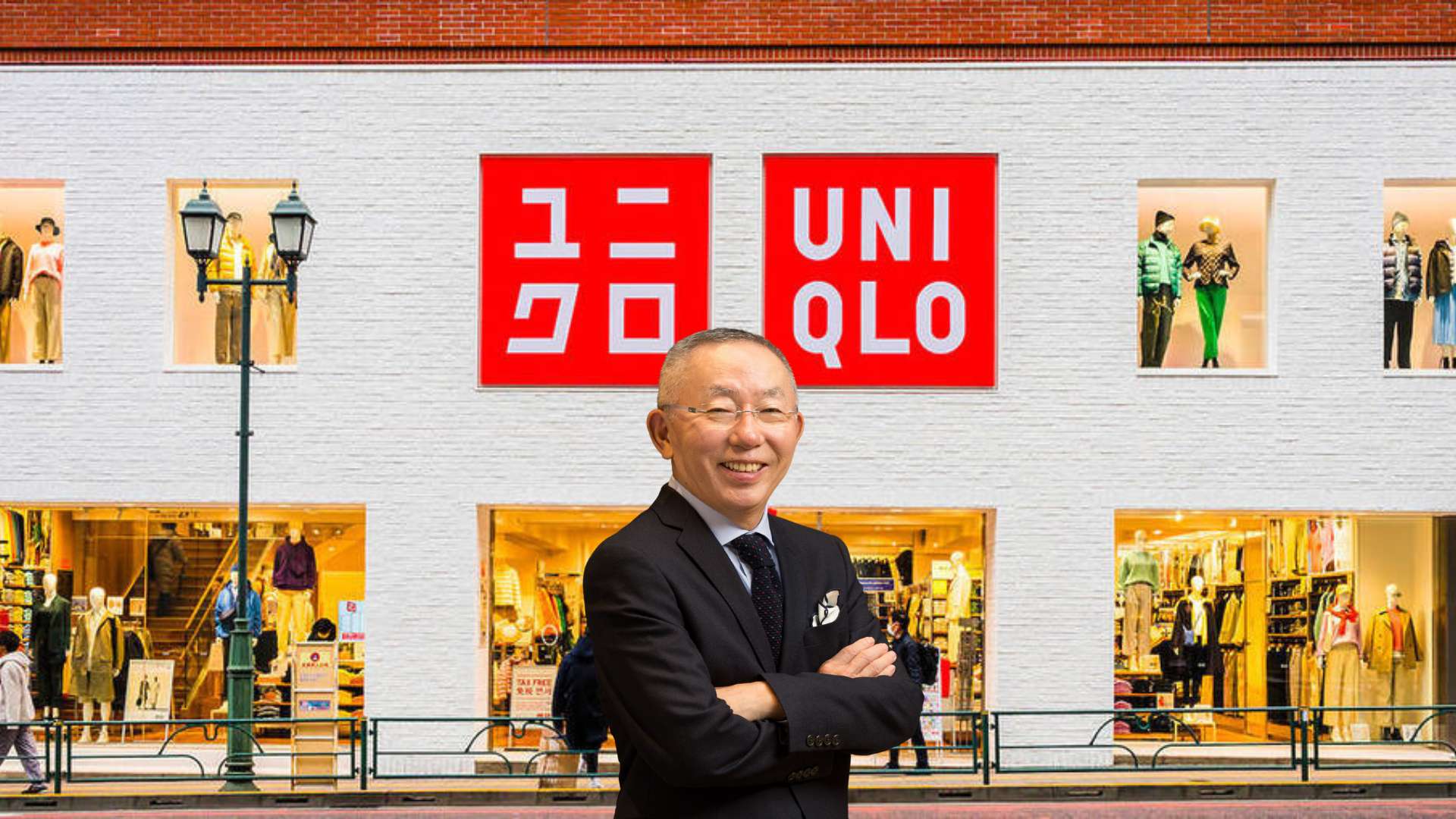Uniqlo Mastered the Art of Simple
By Kelli Luu | 03 Oct, 2025
Tadashi Yanai didn’t need to follow trends or plaster a logo on shirts in order for Uniqlo to become one of the world’s biggest retailers.
In an industry where brand names and logos always stand out, Uniqlo took the opposite approach prioritizing simplicity and timelessness. They’ve built their reputation through what they call LifeWear, which consists of pieces that can be worn by anyone, anywhere.
Uniqlo’s story begins in 1984 with one of the richest men in Japan, Tadashi Yanai. After inheriting his father’s 22 tailoring shops, Yanai decided to start his own retail chain and opened a brand new store in Hiroshima called Unique Clothing Warehouse which would later be renamed, Uniqlo.
The vision was simple. Yanai wanted to provide affordable basics that had the same quality as higher end brands. Uniqlo was offering functional clothing for every age, gender, and social status and this inclusive style began to resonate with Japan’s shoppers. Uniqlo’s momentum continued to grow and Yanai officially rebranded his father’s tailoring chain into Fast Retailing, a multinational retail holding company.
By April 1994 Yanai was able to establish over 100 Uniqlo stores in Japan keeping his costs low without affecting product quality. He looked to international retail companies like Gap for inspiration and executed their style and methods in Japan, focusing on timeless pieces.
With over 500 stores in Japan by 2001, international expansion began in the United Kingdom when Yanai made the decision to open 21 locations. This quickly became a lesson for Yanai as the lack of cultural adaptation in the area led to over half of those stores to close. But rather than giving up, he studied global markets and started to curate each store into a stage that would showcase the Uniqlo brand exceptionally.
Uniqlo landed itself in one of the world’s fashion capitals in 2006 with a flagship store in New York’s Soho District and from there expansion only continued. Flagship stores were opened in Singapore, Shanghai, and Paris in ideal locations near urban centers.
While other brands were looking to stay up to date with trends, Uniqlo focused on building an identity around LifeWear, high quality essentials that could be worn every day. Yanai also invested in fabric innovation, developing their HeatTech and AIRism lines that provide comfortability in any climate without breaking the bank.
Uniqlo has evolved into a brand that customers can trust for practicality and style. Today there are over 2,500 Uniqlo locations in 25 different countries and Fast Retailing sits as the third-largest apparel company in the world. By focusing on timeless designs and innovation, Tadashi Yanai was able to transform Uniqlo into a worldwide closet staple that’s embraced by millions of people. Trends come and go, but Yanai’s commitment to simplicity is what put Uniqlo at the very top.

Asian American Success Stories
- The 130 Most Inspiring Asian Americans of All Time
- 12 Most Brilliant Asian Americans
- Greatest Asian American War Heroes
- Asian American Digital Pioneers
- New Asian American Imagemakers
- Asian American Innovators
- The 20 Most Inspiring Asian Sports Stars
- 5 Most Daring Asian Americans
- Surprising Superstars
- TV’s Hottest Asians
- 100 Greatest Asian American Entrepreneurs
- Asian American Wonder Women
- Greatest Asian American Rags-to-Riches Stories
- Notable Asian American Professionals

